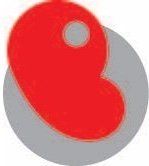Dietary Information
General Dietary Changes
Fluids
Your body has a tendency to form kidney stones. You can reduce the risk of your body producing kidney stones by changing your dietary habits in the following ways:
- Drink a minimum of 4 pints of water per day, enough to keep your urine clear at all times.
- Reduce your salt intake.
- Eat no more than 2 portions of meat a day (red meat, chicken and fish).
Fluids
Drinking plenty of fluid is the best way to avoid kidney stones. Aim for 2-3 litres (4-6 pints) per day of liquids such as water and/ or squash.
When you are drinking enough fluid, your urine will be clear rather than yellow in colour. Aim to keep your urine a clear colour at all times, including first thing in the morning.
Taking a glass of water or squash to bed with you is a good idea.
Alcoholic drinks do not increase your risk of kidney stones. However, alcohol produces more sweating and therefore causes more dehydration which is a risk factor stones.
It is a myth
Calcium containing food
You should aim to eat 3 portions of calcium containing foods every day (as part of your meals). Examples of calcium containing foods are:
• Milk – 1 glass (200mls).
• Yoghurt – 1 pot (125g).
• Cheese – matchbox size (1oz/25g).
• Soya milk – calcium enriched – 1 glass (200mls).
For patients with oxalate stones:
Oxalate is a mineral that combines with calcium in urine to form the most common type of kidney stone (Calcium Oxalate).
A number of foods are high in Oxalate. Too much food containing Oxalate may increase your risk of forming another kidney stone, so where possible, avoid the following foods:
• Tea. • Spinach.
• Rhubarb. • Nuts.
• Strawberries. • Chocolate.
• Wheat bran (contained in cereals/ bread) and Broccoli.
Salt
A high intake of salt is associated with kidney stone formation. To reduce the salt in your diet, keep salt in cooking to a minimum (or better, do not cook with salt at all), and do not add salt to cooked food.
Check labels on processed foods and convenience foods as these have a high salt content. Avoid foods which contain more sodium (salt) than 0.5 grams per 100grams.
Foods high in salt to avoid include:
Meats Bacon, ham, sausage, corned beef, tongue, luncheon meat, beef burgers. All tinned meats.
Fish Smoked fish or shellfish, kippers, yellow haddock, cockles, prawns, mussels, tinned fish in brine.
Spreads Butter, fish and meat pastes, peanut butter, pâté and sandwich spreads.
Snacks Salty and savoury biscuits, crisps and nuts.
Cereals Breakfast cereals high in salt
Flavourings Marmite, Bovril, Oxo, gravy, salt, soy sauce, celery salt, garlic salt, horseradish, onion salt, ‘Season all’ and ‘jerk’ seasoning.
Animal Protein
Reducing the amount of animal protein in your diet can help reduce your risk of kidney stone formation. (Animal protein comes from red meat, such as beef, pork, lamb, and also chicken and fish). Protein is an essential nutrient in the diet; therefore, an adequate (no more than 2 portions) intake is important. It is important not to cut out animal protein altogether.
Further Reading








